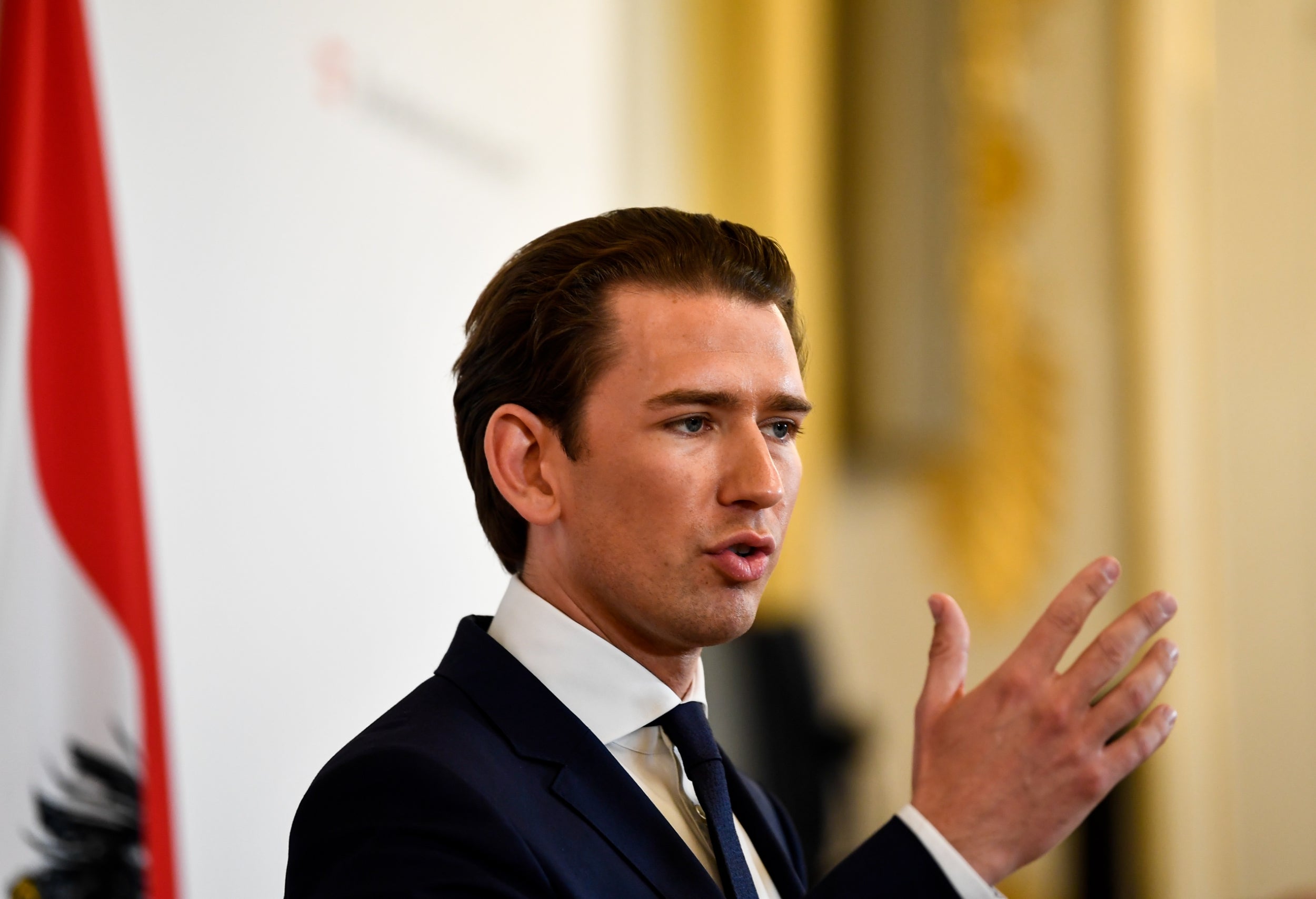Austrian elections: Right-wing leader Sebastian Kurz set to return to power
OVP chief has number of coalition options open, however

Austrian right-wing leader Sebastian Kurz looks set to return to power as chancellor following elections on Sunday, just four months after his last government collapsed.
Mr Kurz, whose last coalition government with the far right fell apart amid a corruption scandal that engulfed his governing partners, is leading strongly in the polls ahead of the vote.
The final shape of the government led by Mr Kurz is still uncertain, however, with a number of different coalition options presenting themselves.
Polls suggest the 33-year-old, who was first elected as chancellor in 2017 after hardening rhetoric and policies towards migrants, could do a deal with the far-right Freedom Party of Austria (FPO) again to return to power – or potentially form a so-called “grand coalition” with the centre-left social democrats.
The country is currently being governed by a non-partisan caretaker government of technocrats, which was installed after Mr Kurz lost the confidence of the country’s parliament.
The latest opinion polls suggest Mr Kurz’s Austrian People’s Party (OVP) will get around 34 per cent of the vote, followed by the centre-left social democrats (SPO) on 22 per cent of support.
The FPO is polling around 20 per cent – relatively unscathed in the eyes of its voters despite its former leader being caught on video offering public contracts to a supposed oligarch in exchange for favourable media coverage.
The group has mostly recovered its popularity under the new leadership of Norbert Hofer, who replaced Heinz-Christian Strache as leader after the so-called “Ibiza affair”, named after the location of the covert video that brought him down.
Mr Strache however retains popularity with the FPO’s core vote in his own right: he won enough support to be elected as an MEP during May’s EU election, on the back of preferential votes – though he ultimately decided against taking his seat.
One feature of the election could be a strong result for the country’s Green party, which is up in the polls – in common with other similar parties across the EU. Surveys show the group beating the liberal NEOS party into fourth place.
An alliance with those two smaller parties could be another option for Mr Kurz, though it would represent a reversal of strategy for a politician who has played to conservative voters, and would require policy compromises.
A deal with the social democrats is seen in Austria as less likely, because the conservative leader has made much play of ending the tradition of “grand coalitions” that have ruled Austria in the past and driven support for the FPO. The far-right group has in the past characterised such arrangements as establishment stitch-ups in its publicity and rhetoric – in common with populists in Germany.
Join our commenting forum
Join thought-provoking conversations, follow other Independent readers and see their replies
Comments
Bookmark popover
Removed from bookmarks